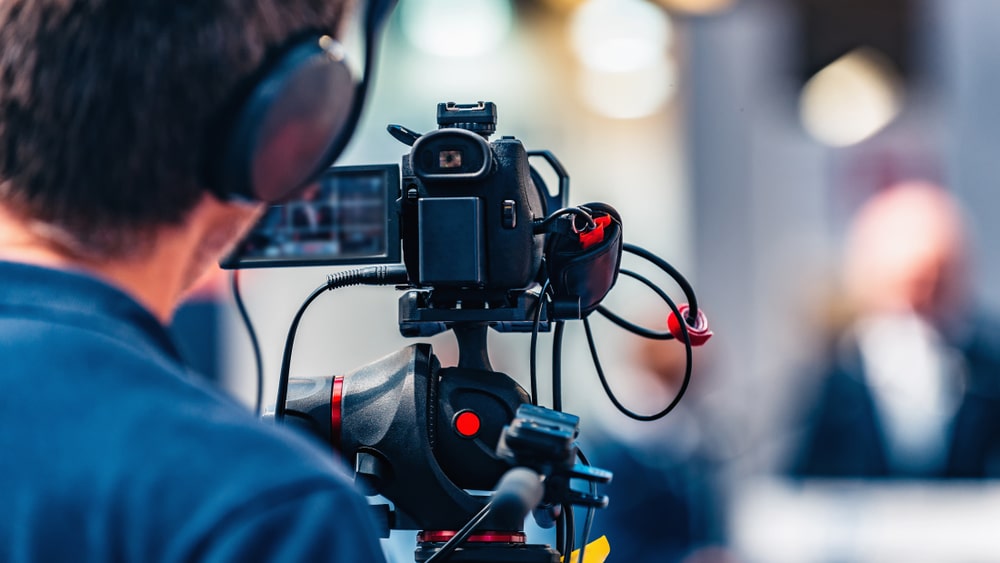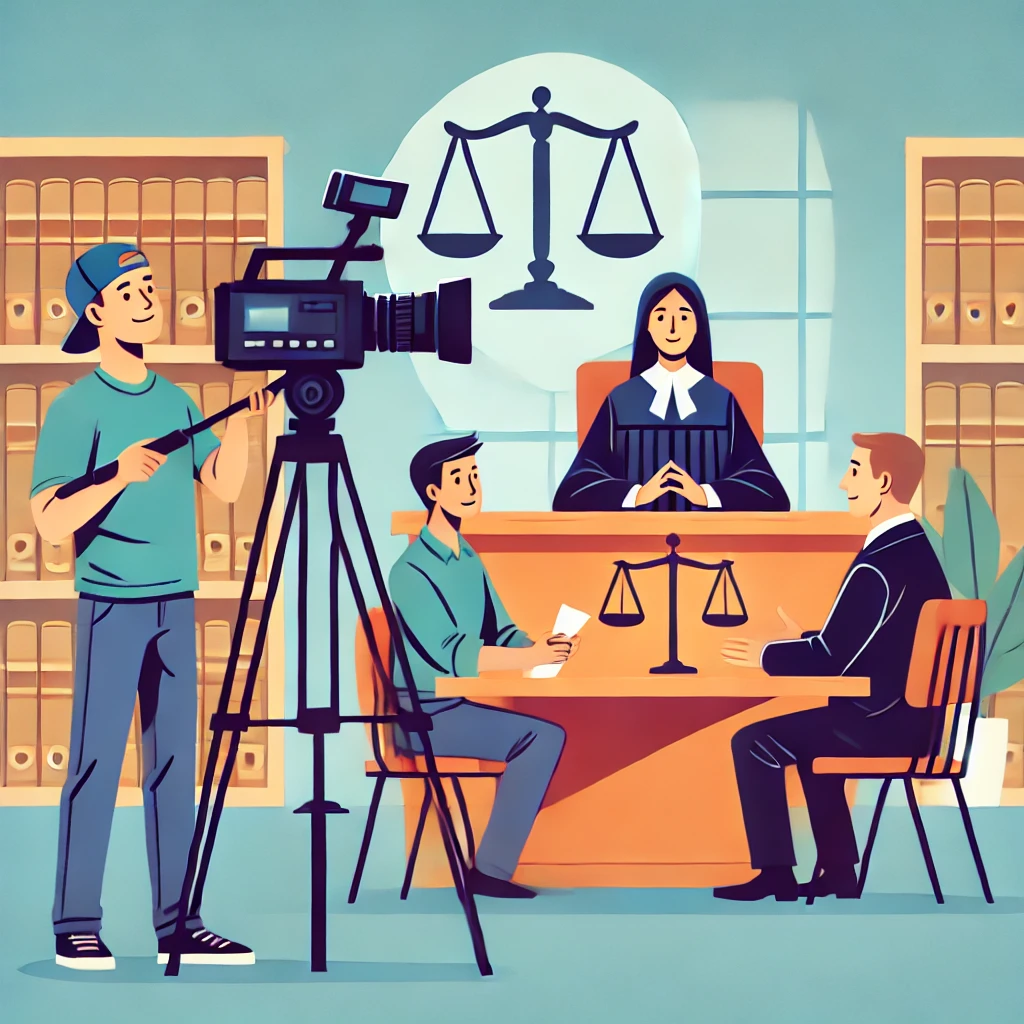Reliable Legal Videography for Capturing Detailed Evidence.
Reliable Legal Videography for Capturing Detailed Evidence.
Blog Article
The Duty of Lawful Videography in Depositions and Trials
Lawful videography has emerged as an essential device in both depositions and trials, supplying a multifaceted strategy to documenting witness testaments. As legal experts increasingly acknowledge its worth, it triggers a much deeper evaluation of just how these visual records can affect juror perceptions and trial end results.

Importance of Legal Videography
Lawful videography plays a pivotal function in the documents and presentation of depositions and trials. This customized area combines technological abilities with lawful knowledge to produce a reliable record of procedures that can dramatically influence situation end results. The appearance of legal videography improves the understanding of witness testament, permitting jurors and judges to observe not only the spoken words however additionally the disposition, emotions, and body language of the witnesses.
In enhancement, legal videography offers an unbiased account of events, reducing the capacity for misconception that can happen with composed transcripts alone. This visual documentation functions as a crucial device throughout test discussions, assisting in a more clear and even more convincing narrative for both plaintiffs and defendants. The capacity to replay video sectors throughout court procedures allows legal teams to highlight crucial points, strengthening their disagreements properly.
The relevance of lawful videography expands past the court; it also plays a vital function in protecting evidence for future reference, whether for allures or further legal activity. Thus, its combination into the legal procedure is important for guaranteeing a fair and precise representation of the realities, ultimately adding to the search of justice.

Process of Legal Videography
While recording the subtleties of depositions and tests, the process of legal videography involves a number of important actions that ensure premium, accurate recordings. At first, a professional legal videographer prepares by reviewing the situation materials and recognizing the certain needs of the deposition or test. This prep work consists of familiarizing themselves with the participants and the context, which helps in capturing pertinent information.
On the day of the recording, the videographer sets up the required devices, which normally includes high-def cameras, microphones, and correct lights. Making sure optimal angles and audio quality is essential, as it directly impacts the effectiveness of the recording. The videographer connects with attorneys and participants to develop methods, making sure that everybody comprehends the recording process.
Throughout the deposition or trial, the videographer diligently tape-records the proceedings, paying very close attention to both verbal and non-verbal cues. This includes catching the demeanor and responses of witnesses and attorneys. After the session ends, the videographer may edit the video footage for clarity and compliance with lawful criteria, generating a last product that precisely reflects the procedures for future reference and usage in legal contexts.
Advantages in Depositions
The incorporation of videography in depositions offers numerous advantages that boost the overall process of collecting proof. One primary advantage is the capability to record witness testimonies with visual and auditory fidelity, offering a much more precise depiction of the witness's demeanor, tone, and body language. This multidimensional approach enables lawyers and courts to analyze reputation more successfully than typical written transcripts alone.
In addition, videographed depositions function as a powerful device for maintaining testimony. Must a witness ended up being not available for trial, their recorded deposition can be played click this link in court, ensuring that their proof remains accessible and appropriate. This element considerably decreases the risk of losing critical info that can affect situation results.

Finally, videography improves the general professionalism and trust of the deposition procedure, instilling confidence in clients regarding the thoroughness of their lawful depiction (legal videography). By leveraging modern technology, attorneys can significantly enhance the efficiency of depositions
Influence On Trials
In several trials, the combination of videography can substantially affect the discussion of evidence and the court's perception. Legal videography records witness statements and critical evidence in a vibrant format, enabling jurors to engage with the material on several degrees. This visual element boosts the narration aspect of a trial, supplying context and emotional resonance that standard text-based evidence may do not have.
Moreover, video clip recordings can work as effective tools for impeachment throughout interrogation. When discrepancies develop in between a witness's previous declarations and their court room testament, video clip evidence offers an objective reference that can persuade jurors' point of views. This immediacy and quality can bolster the reputation of an event's narrative while concurrently weakening opposing arguments.

Future Trends in Legal Videography
As we look towards the future of lawful videography, several emerging trends guarantee to reshape its function within the court. One considerable fad is the combination of fabricated intelligence (AI) in video analysis and modifying. AI can improve the procedure of recognizing essential minutes in taped depositions, enabling attorneys to quickly access appropriate web content, thereby boosting performance in situation preparation.
Additionally, the surge of digital reality (VR) and boosted fact (AR) innovations is anticipated to transform just how jurors experience proof. legal videography. By submersing jurors in a substitute environment, these technologies can supply an extra extensive understanding of complex situations, leading to even more educated considerations
Furthermore, the boosting need for remote depositions, increased by the COVID-19 pandemic, will likely continue. Legal videographers will need to adapt to brand-new software and systems to make sure top notch recordings in virtual settings.
Finally, the expanding emphasis on information security will certainly necessitate stricter procedures for saving and sharing video clip evidence. As the legal landscape advances, legal videographers need to stay abreast of these fads to maintain their relevance and performance in the judicial procedure.
Conclusion
In recap, legal videography offers a vital function in the judicial process, enhancing the honesty of depositions and tests. By recording the nuances of witness statements, this medium not only protects crucial evidence however likewise aids in offering details successfully to directory jurors. The relevance of aesthetic documentation in reviewing reputation and helping with interrogation can not be overemphasized. As technology continues to progress, lawful videography is positioned to more transform its duty within the lawful landscape.
Report this page